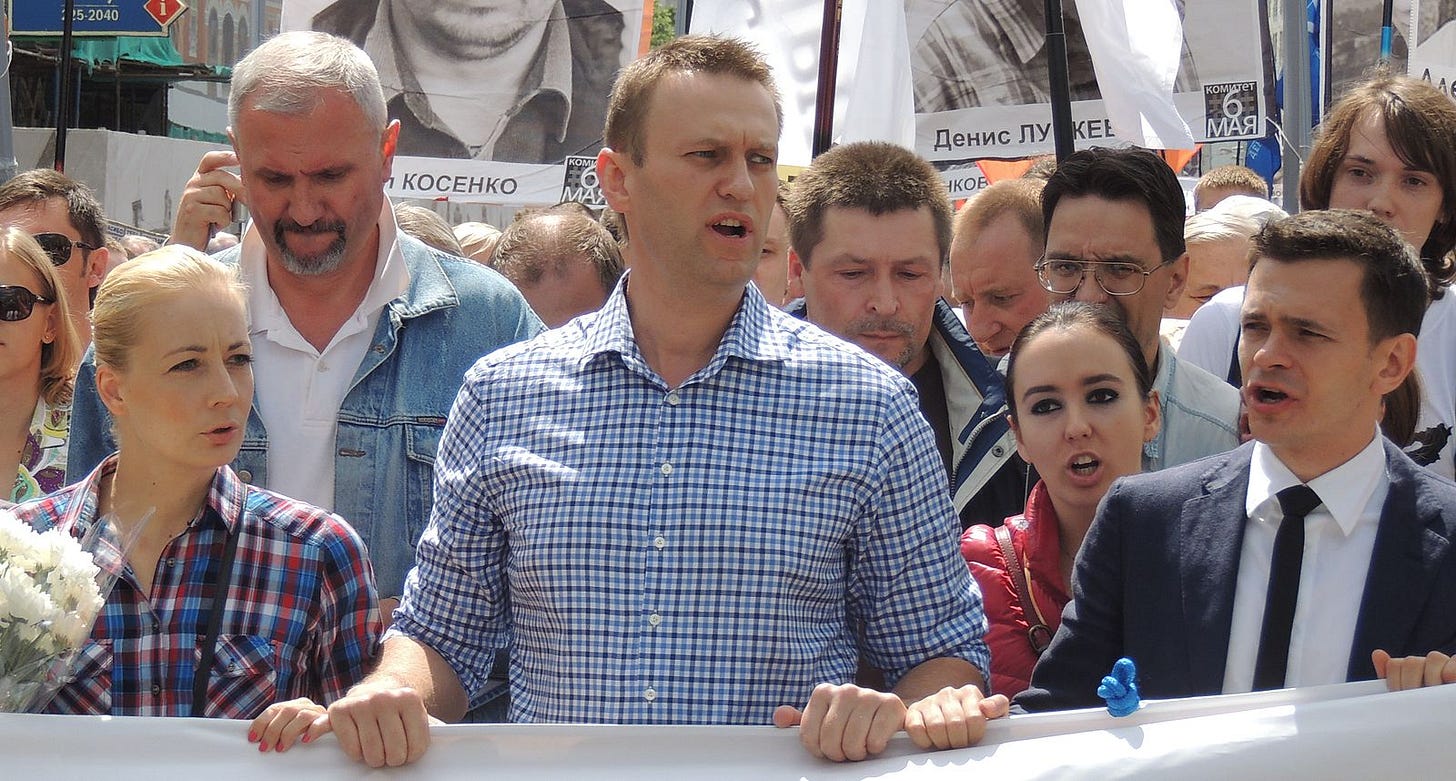House of Wirecards | A new Ostpolitik?
1,131 words - a five minute read
Ladies & Gentlemen,
Before heading into the weekend we’ll be reviewing the cast of the most drawn-out German drama since Brecht - the Wirecard scandal, and then look at why a patient on life support in Berlin could be about to reverse 50 years of Russia relations.
Regards,
Jörg & Axel
The men and women of the house of Wirecard

With cinemas and theatres closed, we’ve been lacking drama in our lives. But watching the Wirecard thriller unfold has more than filled the gap. With each new week the one-time darling of Finanzplatz Deutschland threatens to bring another member of the German establishment down with it.
Founded in 1999 as a payment processor for porn and gambling, Wirecard has always had something of the night about it. Despite its dubious beginnings, its rise to respectability was rapid. Through a series of mergers and acquisitions, CEO Markus Braun morphed it into a financial services provider with revenues in the Billions of Euros.
The Financial Times had questioned its accounting practices for years and in 2019 started to unravel what became the largest accounting scandal in German corporate history.
As it turns out, the company was a fraud all along. Wirecard filed for insolvency in June after admitting that €2 billion in cash on the company’s books never existed. €30 billion of shareholder value disappeared as the company collapsed.
While Braun awaits trial in a Munich jail cell, the apparent mastermind, Chief Operating Officer Jan Marsalek, has proved harder to locate than the company’s fabricated assets. He has vanished into thin air (possibly with the help of Russian secret agents). Some rumours locate him in Belarus… but no one knows for sure.
Finance Minister and Chancellor hopeful Olaf Scholz (SPD) is one supporting character in the story. Since he’s ultimately accountable for the BaFin (Germany’s Financial Supervisory Authority - whose responsibility it was to monitor Wirecard), opponents think they can damage him through a parliamentary investigation that’ll stretch into the upcoming election year. Something he’ll be sure to have to explain: why his state secretary Jörg Kukies held a secret meeting with Markus Braun months before news of the scandal broke.
The head of the Bafin himself, Felix Hufeld, is fighting for his future. Instead of monitoring Wirecard, a large number of his employees were busy trading its stock. And when a journalist from the Financial Times smelled a rat right under Mr Hufeld’s nose, his agency filed complaints against the journalist instead of following the stench.
The scandal has even blemished the reputation of the infallible Mrs Merkel, with the German media making a big deal of the fact that she praised the company during a state visit to China last year.
The list of institutions which the two Austrians Marsalek and Braun could take down with them goes on. Yet there is one group whose disappearing act is almost as impressive as Mr. Marsalek’s. The company’s board of directors, whose duty it is to monitor the management, have quietly withdrawn into the shadows.
Several of Wirecard’s six board members have CVs implying vast experience in payments and financial technology and some have been on the board since the early years.
Yet despite their responsibilities and experience the board is so far being let off the hook. There has been virtually no scrutiny of their role in the collapse of what was once one of Germany’s most valuable companies.
The ghosts of Wirecard will plague the German establishment for years to come. It will take much longer to understand how the billions could vanish and who’s fault it was than it took for them to disappear in the first place.
Hence there is still hope that the board of directors will not be forgotten when the final chapter in the Wirecard saga is written.
A.B.B.
Time for a new Russia policy?

History sometimes has a strange symmetry to it.
Almost exactly 50 years ago, Chancellor Willy Brandt arrived in Moscow to sign a deal that would fundamentally alter West German relations with the Soviet Union.
What Brandt called “transformation through rapprochement” in effect meant Germany giving up its claims to territories inside Poland, while for the first time recognising (with caveats) the existence of communist East Germany.
In return, the USSR and its European satellite states began to normalise relations with West Germany, thus taking the sting out of one of the most explosive fronts in the Cold War.
The neue Ostpolitik polarized Germany like no other policy since the end of the war. Conservatives accused Brandt of “treachery” for giving up territorial claims in the east. He only managed to get the deal through the Bundestag after calling a snap election.
Nonetheless, Brandt’s Ostpolitik became the paradigm that would be followed by German Chancellors for decades. Making amends for the horrors of Nazi war crimes by reaching out to Russia became a mantra of German foreign policy.
While the virtue of this policy has become ever more questionable in the Putin era, it has allowed Germany to import large quantities of Russian gas on the pretext that it is strengthening bonds between the two economies.
Now though, the Brandt dogma might finally be dying.
The figurehead of the Russian democratic opposition, Alexei Navalny, is lying in a coma in a Berlin hospital after being poisoned with the nerve agent Novichok. The assassination attempt happened in Siberia, but Navalny was flown to Berlin at the request of his family.
On Wednesday, Angela Merkel announced that German investigators had proved the poisoning beyond doubt. Due to the sophistication of the weapon - and its use in an attack on the former Russian spy Sergei Skripal in the UK in 2018 - it seems certain that the Russian state is responsible.
Navalny’s recovery will be slow, German doctors say. But when he does get better it seems inconceivable that he would return to the country that tried to kill him. It’s much more likely that he will become the powerful figurehead of an opposition in exile in Berlin.
That will make it harder than ever for Berlin to continue with business as usual: condemning Russian for human rights abuses while building pipelines under the Baltic Sea (see newsletter from August 21st).
Whereas many Germans were strangely reluctant to believe the UK government when Skripal was poisoned in Salisbury, the outrage on this occasion is much louder (except inside the Left Party, who blame the CIA).
Pressure is now growing for a break with the past that would be as monumental as Brandt’s 50 years ago. Even influential members of Merkel’s CDU are demanding that the almost-finished Nord Stream 2 gas pipeline be abandoned. That Merkel, in her twilight years, is the person to reset relations seems unlikely. But perhaps her successor will one day have his or her name attached to a neue neue Ostpolitik.
J.L.
Who we are:
Jörg Luyken: Journalist based in Berlin since 2014. His work has been published by German and English outlets including der Spiegel, die Welt, the Daily Telegraph and the Times. Formerly in the Middle East.
Axel Bard Bringéus: Started his career as a journalist for the leading Swedish daily Svenska Dagbladet and has spent the last decade in senior roles at Spotify and as a venture capital investor. In Berlin since 2011.


